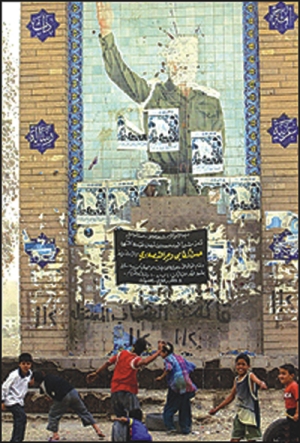|
Enternatinment
World Service
Comes Full Circle
David Sillito
 THE BBC's first foreign language radio service was launched in 1938. It was in Arabic. Sixty-seven years later the first BBC funded foreign language TV service is to be launched. THE BBC's first foreign language radio service was launched in 1938. It was in Arabic. Sixty-seven years later the first BBC funded foreign language TV service is to be launched.
Again it will be in Arabic.
The political background has changed. In 1938 the British government was concerned about Italy's Radio Bari broadcasting anti-British propaganda to the region.
But the need for a strong BBC presence across the Middle East remains as strong as ever.
However, while the radio service has about 12 million listeners, increasingly it is satellite television that is becoming the main source of news.
The BBC has already had a go at running an Arabic language TV service. It fell apart in the 1990s following a series of editorial conflicts with its Saudi-backed funders. It did leave an interesting legacy - a pool of trained Arabic journalists who went on to become the core of a new broadcaster, the Qatar based al-Jazeera.
Al-Jazeera is famous for its broadcasts of recordings of Osama bin Laden. The US government has been critical of the broadcaster for its coverage of events in the Middle East, but it has had a dramatic impact on the spread of free speech across the region.
Al-Jazeera has meant that this new BBC venture will be launched in to a very different media world.
It has been joined by other satellite broadcasters including the Dubai based 24-hour news network, al-Arabiya.
As a consequence, audiences across the Middle East have now grown used to seeing open discussions on political issues, phone-ins and breaking news stories that many governments would be keen to see repressed.
The tone is dramatic and lively and debates can turn into shouting matches. Dr Katarina Dalacoura, a Middle East expert from the London School of Economics, believes the BBC service could well serve a niche but will have to reflect the lively style of its competitors.
Ten years ago it had the market almost to itself - today, "this is a region where TV satellite channels are very popular or even populist - so they (the BBC) must play this game....if this balance is struck it will succeed but it is a risky venture," she says.
Al-Jazeera's view is interesting. It welcomes the arrival of the BBC. Yosri Fouda, the London bureau chief, says: "Al-Jazeera's main enemy has been a lack of another al-Jazeera."
The BBC, he believes, will help carry forward a change in culture across the region in favour of free speech and accountability. For while some in the West may view al-Jazeera as a soap box for terrorists, it faces far greater problems from within the Arab world.
"We are hardly represented in most of the Arab countries. Every now and again our offices are closed down or our journalists arrested. I was arrested three times in different parts of the Arab world.
"We do not even dream of existing in Saudi Arabia, we don't have an office in Baghdad or anywhere in Iraq. We are now and then closed down in Jordan, Tunisia and Morocco."
Mr Fouda used to be a BBC employee and is amazed it has taken the BBC so long to return to the region.
He says it has a 70-year-old reputation for impartiality and could help dismantle the barriers hampering television reporting.
But there is also the problem of the current political situation.
British troops are part of an occupying army in Iraq and the new BBC service is funded by the British government.
Mohammed Chabarro from al-Arabiya again welcomes the BBC, but adds: "People will look with cynicism to the new venture if it takes off, especially given the British position as a strong ally to the US and the US and coalition military situation."
Copyright
(R) thedailystar.net 2005 |
